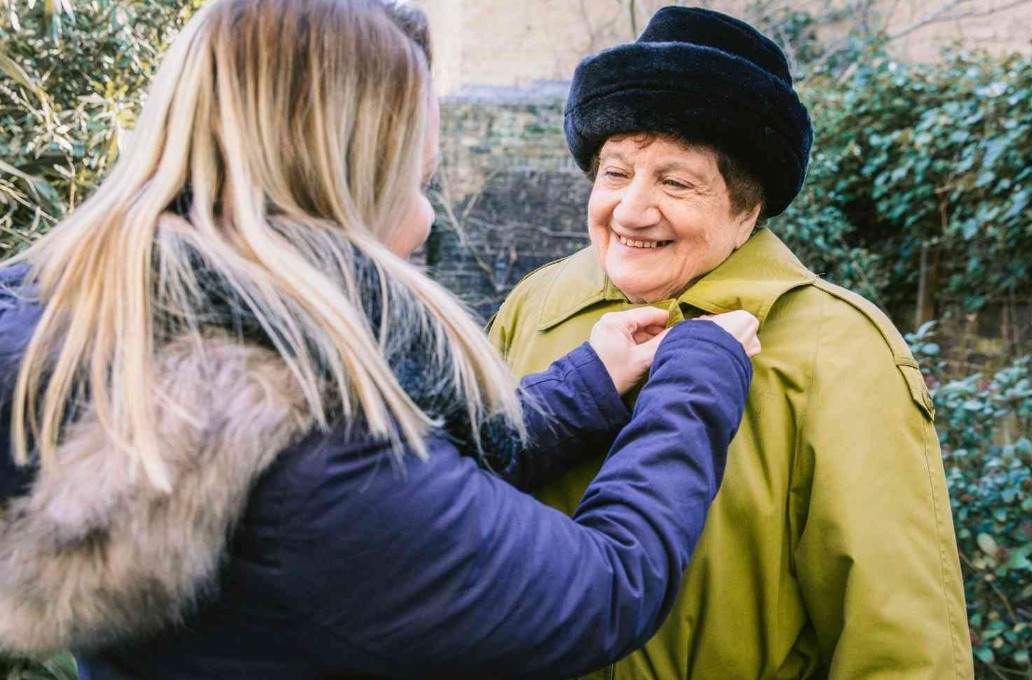Deciding when someone living with dementia needs 24-hour care is one of the most difficult decisions families face. As dementia progresses, daily activities become more challenging and safety concerns increase. Many families worry about acting too early… or waiting too long.
Many families notice these changes gradually – a loved one forgets to turn off the oven, begins wandering at night, or struggles to manage daily routines. Recognising these shifts early helps you plan care before a crisis occurs.This guide explains the signs that indicate round-the-clock care may be needed, and how professional live-in carers provide support, safety, and peace of mind.
Short answer: When is 24-hour dementia care usually needed?
Most people living with dementia need 24-hour care when safety, well-being, or basic daily needs can no longer be reliably managed without constant supervision.
This often happens when:
- There is a real risk of harm during the day or night
- Night-time confusion or wandering disrupts sleep
- Personal care, meals, or medication are regularly missed
- Family carers are exhausted, unwell, or unable to cope safely
Needing 24-hour care isn’t a failure. It’s a sign that care needs have changed.
Key insights:
- Aggression and agitation often signal unmet needs such as hunger, pain, or confusion rather than intentional hostility in people living with dementia.
- Safety risks increase as dementia progresses – including wandering, falls, forgotten appliances, and sundowning episodes that put both the person and family at risk.
- Carer burnout indicates professional support is needed. Constant responsibility and disrupted sleep can lead to exhaustion, making safe, consistent care difficult.
Aggressive behaviour in dementia
Agitation is the most common symptom in care home residents living with dementia. When combined with aggression, it can be distressing and frightening for families.
These reactions aren’t personal. They usually indicate confusion, fear, pain, or an inability to communicate an unmet need such as hunger, discomfort or overstimulation.
As dementia progresses, some people become more sensitive to noise, temperature changes, or unfamiliar environments. If behaviour becomes unpredictable or physically unsafe, 24-hour supervision may be needed to protect both your loved one and those caring for them.
Caregiver stress and burnout
Caring for someone with dementia can be deeply rewarding, but it is also physically and emotionally exhausting. Many family carers reach a point where they are no longer able to provide safe, consistent care – even with the best intentions!
Constant responsibility, disrupted sleep, and emotional pressure can lead to anxiety, low mood, and exhaustion. Feeling overwhelmed, resentful, or constantly on edge is not a personal failure. It’s a signal that the situation has become unsustainable.
When caring begins to affect your own health, it is often time to consider 24-hour support.
When everyday safety can no longer be managed
As memory and judgement decline, everyday activities can become dangerous. Leaving the stove on, falling on stairs, or wandering outside are all signs that home safety is at risk.
If your loved one can no longer recognise risks or respond appropriately to danger, continuous supervision may be required.
When memory loss affects basic daily care
In the early stages, forgetfulness may seem manageable. It can be as small as missed appointments, misplaced items, or repeated questions. As dementia progresses, it can interfere with daily activities such as hygiene, nutrition, and self-care.
If meals are missed, medication is forgotten, or personal hygiene is declining despite reminders, living independently may no longer be safe. This can be the moment to explore how to talk about care needs.
Mobility issues and wandering
6 in 10 people living with dementia become restless and wander, often without awareness of time or place. This behaviour can be dangerous, especially at night or in cold weather.
Wandering increases the risk of falls, injuries, or becoming lost. When this behaviour can’t be managed with alarms or occasional checks, 24-hour care may be necessary.
Sundowning
As daylight fades, some people experience increased confusion, agitation, or anxiety – a pattern known as sundowning.
This may include pacing, shouting, or restlessness in the late afternoon or evening. A trained 24-hour carer can help manage these episodes calmly, providing reassurance and maintaining safety overnight.
A simple self-check for families
You might want to explore 24-hour dementia care if two or more of the following are true:
- You can’t sleep properly because you’re listening out at night
- You worry about safety when you leave the house
- Personal care or medication is being missed
- Behaviour feels unpredictable or difficult to manage
- You feel constantly exhausted, anxious, or unwell
If this feels familiar, it’s usually the right time to seek advice.
What 24-hour dementia care includes
Round-the-clock dementia care provides support and comfort for both the person living with dementia and their family – all within familiar surroundings.
A live-in carer assists with:
- Washing, dressing, and maintaining personal hygiene
- Preparing meals and monitoring nutrition
- Administering medications at the correct times
- Providing companionship and emotional reassurance
- Managing sleep disturbances, wandering, and sundowning episodes
- Liaising with doctors or therapists when needed
24-hour carers understand the unpredictable nature of dementia. They respond with patience and compassion, ensuring your loved one’s dignity, safety, and independence are maintained for as long as possible.
For families considering different care options, you can explore the cost of overnight care to understand what level of support best suits your situation.
Recognising the moment to ask for help
Recognising that your loved one needs 24-hour care isn’t giving up – it’s an act of responsibility and care.
Professional support means your loved one receives consistent, skilled care while you can step back and focus on your relationship.
“Many families tell us they wish they’d started planning earlier. If you’re noticing changes in your loved one’s daily routines or mobility, that’s often the right time to explore your options – before a crisis forces rapid decisions.” – Dimple Chandarana, Head of Clinical Governance at Hometouch
Finding peace of mind as care needs change
Recognising that care needs are changing can feel overwhelming. You don’t have to make decisions all at once – or alone.
With the right support, people living with dementia can remain safe and comfortable in familiar surroundings, while families regain confidence and rest.
Every carer receives comprehensive dementia training, and your clinical manager remains involved to ensure care adapts as needs change. Talk to one of our care experts – no pressure, just answers to your questions.



